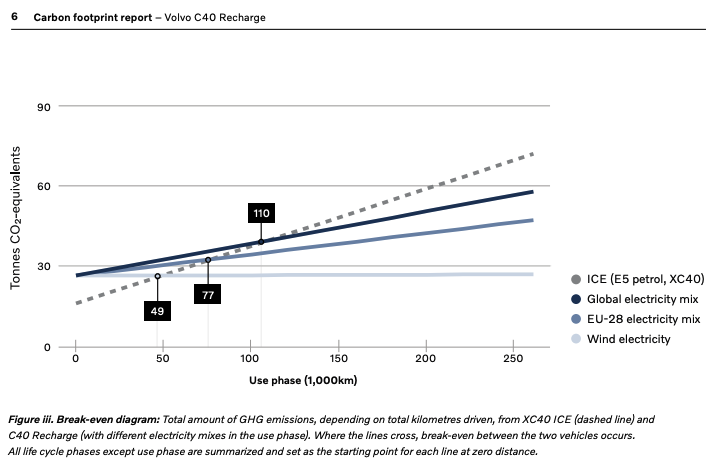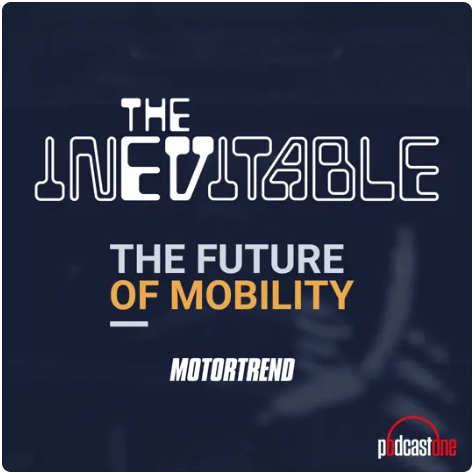And who could’ve predicted that regulators – at least in the automotive domain – are taking exactly the approach I proposed vis-a-vis AI but for EV, which is to say “rest and digest” a little more than “fight or flight”?
So it is that the “bans” of combustion engine vehicles that Europe was supposedly leading the world towards in 2035 are now looking substantially more tenuous than they were even just a few weeks ago. Accelerationism for thee but not for me, y’know? Of course, sharper-than-average commentators including Tony from Gravelwood UK and our old (American) friend Jack Baruth, saw this “course-correction” coming a mile away, but what did they see that the rest of us “inEVitable“-istas didn’t?ii How were they able to see so clearly through the noise?
To start with, they saw that the only things inEVitable about electric vehicle ownershipiii are:
- High expense
- Limited driving range
- Long charging times
- Insufficient infrastructure
- Poor cold weather performance
- Dodgy reliability/durabilityiv
- Dubious environmental (and ethical) justificationv
And of course that political flights of fancy are no match for the accrued momentum of one of the largest industries on the planet, perhaps especially so in our decadent political and monstrously corporatised age.
Yet those of us with too many University degrees and not enough salt-of-the-earth experience largely saw only a gleaming mirage on the horizon, one where our shit didn’t stink and we got to live in quiet cities free of car emissions.vi Sure enough, it seems that the mirage was pretty, well, mirage-y! So here we are in April 2023 with the not-exactly-black-swan state of affairs wherein the once “inEVitable” transition away from evil fossil fuels and towards polar-bear-friendly wind turbines is looking more and more fallacious to more and more people everyday. The “consensus” is melting away like so many ironic ice caps.
The dead giveaway in this “Dieselgate 2.0” saga has to be Germany’s recent relent to allow “synthetic fuel” combustion vehicles beyond the proposed 2035 ICE ban.vii At the same time, Porsche has been investing in (and promoting the socks off of) “zero carbon e-fuels”,viii which we can think of as the equivalent of new age e-girl vape pens to old school Marlon Brando’s cigarettes,ix but without the fentanyl or near-term scalable production potential. And
with this “pivot,” we can now clearly expect the goal posts to move at least a few more times between now and 2035 be moved on us given that synthetic fuels are only being produced in extraordinarily small quantities (in Chile of all places) at present.But what if synthetic fuels really do start to scale up production in the next 20-30 years? Will we see ExxonMobil a few decades hence exiting the old world of geology for the new world of chemistry, the way Philip Morris has promised to stop selling cigarettes in favour of vapes? I mean look at oil changes for the premium end of the automotive market today: can you imagine putting non-synthetic motor oil in your BMW? Like some kind of peasant? Of course the production volumes matter hugely, and ICE vehicles use a boat load more oil-derivatives for locomotion than for lubrication, but it’s still not hard to imagine a future where Ferraris burn synthetic fuels in their fire-breathing engines. Crazier things have certainly happened, so it must be admitted that there’s still significant disruptive potential for the Oil & Gas Industry in the decades to come given the pricing of oil is all about the marginal barrel of demand. So in a couple decades from now, even if EV is only 10-20% of the global market and synthetic/e-fuel is another 2-5%, the price of a barrel of oil still might be down 75% from what it is today, which would massively favour the Saudis, Russians, Venezuelans, and other ultra-low-cost producers at the expense of my beloved Albertans and its pricey oil sands.
Needless to say, the evolving landscape for “the future of mobility” is certainly less black-and-white than the powers-that-be would have had us believe when Elon was giga-peaking with Tesla about five years ago. This isn’t to say that EVs won’t play a role in transportation going forward (not least of all because the Porsche Taycan remains the best intra-urban runabout car for a well-heeled young family man*),x but the niche that EVs occupy isn’t anywhere near “the tipping point” it was all-too-recently made out to be. Really, as wonderful as EVs are and as much as some people love theirs, the idea of regulating them into the mainstream makes about as much sense as everyone in Stalin’s CCCP wearing a size 9 women’s shoe, or calling your navy’s fishing vessels “military craft” so that the stability of the global reserve currency somehow comes into question.xi And that’s not exactly aspirational!
So we really needn’t fret that the days of V8, V10, V12, and W16 engines are numbered. Anyone telling us otherwise is just trying to make us FOMO into “the end of an era” product. The antidote is to recall that there’s no end to anything. Even this upcoming era of overweight hybridised super/hyper-cars will come to an end and pure NA/FI glory will return. Mark my words.
But I guess we can go back to AI handwringing now? At least if we really want something to EnVy…
- In coming weeks, even more two-letter acronyms will be featured, including PC, AB, and more! ↩
- The worst offenders in the “inEVitable”-ista camp include the likes of Jonny “Hate Bait” Lieberswine (archived) who even went as far as to call his own mouth-breathing podcast, wait for it, InEVitable (archived). I can’t make this shit up. ↩
- Some of my own long-term experiences with EV ownership are recounted here: Living with the Taycan 4S: Porsche’s first all-electric sports car, Two steps forward, two steps back, and Review: 2021 Mercedes-Benz C300 4MATIC (which is equally as much about the Taycan as the C-Class). ↩
- Not that we should be so sloppy as to entirely lump together reliability and durability, but really Jack makes the cut sharper that I possibly could so I’ll just leave his article here for your extended reading: There Is a Difference Between a Reliable Car and a Durable Car: Everyone says they want a durable car. They really want a reliable one. ↩
- The life-cycle assessment research from Volvo isn’t completely damning but it’s not exactly a glowing endorsement for the EMERGENCY SITUATION that regulators are trying to create so as to keep the capitalistic hamster wheel of fear and consumerism humming along:

In 2019, the world consumed approximately 100.1 million barrels of crude oil per day, according to the BP Statistical Review of World Energy 2020. To convert this figure to liters, we can use the conversion rate of 1 barrel of oil being equal to 159 liters:
100.1 million barrels/day * 159 liters/barrel ≈ 15.9 billion liters/day
Now, to estimate the annual consumption:
15.9 billion liters/day * 365 days/year ≈ 5.8 trillion liters/year
Please note that this estimate is based on data from 2019 and may not accurately represent the current situation.
Which means that a whopping 0.00948% of annual crude oil consumption is coming online as e-fuels in the next 5 years. Let’s say they 100x that over the next 10-20 years and they’re still only less than 1%, which means that we have at least another generation of dino juice prosperity for all until the great disruption takes hold. I think we can all live with that kind of timeline? ↩


 Last week
Last week
[…] stations were about to take over the country (and possibly the world… it was “inEVitable“), but instead this little slice of the Mediterranean ended up with an intelligently-designed […]
[…] couldn’t possibly be anything less than apocalyptic, irrespective of political stripe. “EVs are inEVitable and going to make new cars fat” etc. etc. quite in spite of the fact that EVs have a very […]
[…] towards electric vehicles. While a pure-EV future certainly isn’t anything approaching “inEVitable” within the next century, even a marginal shift towards zero-tailpipe-emission transportation […]
[…] Sector, So it wasn’t “mood affiliation” after all,v Some things really are inEVitable: dreams and […]
[…] of 2035, but let’s not give your humble author too too much credit. If anything was “inevitable” in hindsight, it was, unfortunately, the ritualistic “throwing of the jew down the […]
[…] even in this tempest fierce, Where futures might unwind, There lies a hope, a thread so thin, That binds all of […]
[…] Not least of which is the ever-shifting Sovietesque marketing with its various and sundry “2030 Challenges” across the western world that are quickly becoming “2050” targets, and seem […]